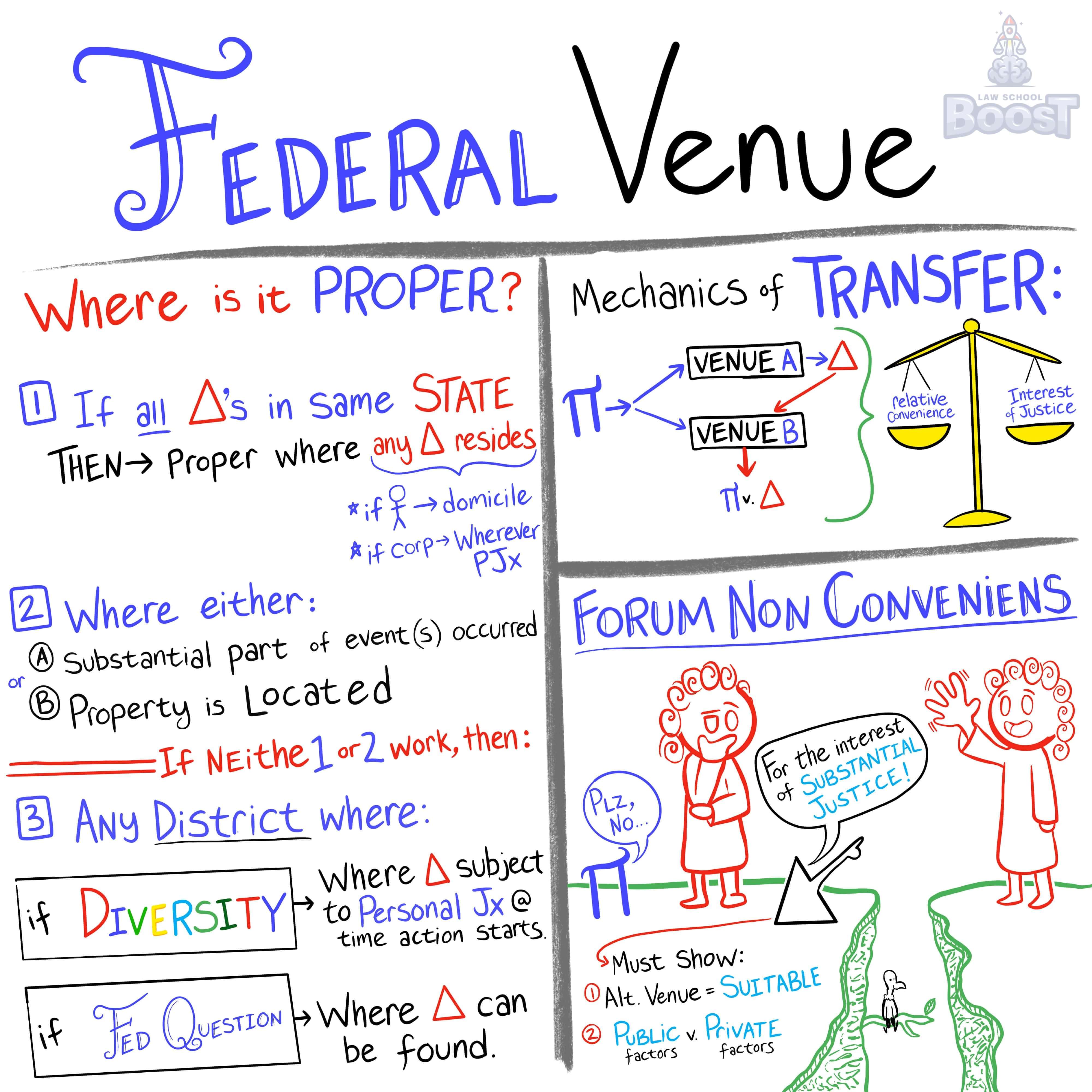🤤
Civil Procedure • Venue
CIVPRO#021
Legal Definition
Venue can be transferred to another district where the action could have otherwise been brought if it is appropriate upon a balancing of the relative convenience and in the interest of justice. If the original venue was proper, the new venue must apply the law of the original venue.
Plain English Explanation
Generally, it is common for more than one court to have jurisdiction over a lawsuit. Similarly, it is not uncommon for a defendant to prefer a different venue than the one originally selected by the plaintiff when the lawsuit was filed. Usually, this difference in preference comes down to convenience for the parties. For example, a plaintiff is likely to originally choose a venue that is the easiest and closest for them to physically get to. Likewise, a defendant is likely to prefer a venue that is closer to them, or their attorney, etc.
When a court decides whether or not to allow a venue to be transferred, it will first make sure that the new venue is appropriate to hear the case. In other words, you can't transfer a case to a court that would be improper to hear the case in the first place.
The next thing the court will consider is a balancing test of the "relative convenience" between not only the parties, but also their witnesses, the available evidence, etc.
Finally, the court will look into whether transferring the venue would be "in the interest of justice," meaning whether or not the hassle of changing the venue results in a gain or benefit to justice. For example, a common reason someone may want to change venue is because they are attempting to "forum shop" (find a judge that is more likely to rule in their favor). Forum shopping is a strategy that is in the interests of individual parties, but not justice as a whole.
When a court decides whether or not to allow a venue to be transferred, it will first make sure that the new venue is appropriate to hear the case. In other words, you can't transfer a case to a court that would be improper to hear the case in the first place.
The next thing the court will consider is a balancing test of the "relative convenience" between not only the parties, but also their witnesses, the available evidence, etc.
Finally, the court will look into whether transferring the venue would be "in the interest of justice," meaning whether or not the hassle of changing the venue results in a gain or benefit to justice. For example, a common reason someone may want to change venue is because they are attempting to "forum shop" (find a judge that is more likely to rule in their favor). Forum shopping is a strategy that is in the interests of individual parties, but not justice as a whole.
Visual Aids

Related Concepts
How is residence determined?
In California, when may a court transfer venue?
In California, where is venue proper for cases against corporations, associations, and partnerships?
In California, where is venue proper for contract actions?
In California, where is venue proper for location actions?
In California, where is venue proper for mixed actions?
In California, where is venue proper for personal injury or wrongful death actions?
In California, where is venue proper for transitory actions?
What are the private factors considered in establishing forum non conveniens?
What are the public factors considered in establishing forum non conveniens?
What is forum non conveniens and how is it established?
What is the difference between transferring venue and forum non conveniens?
What is venue?
What is venue in California?
When is venue proper in Federal court?


